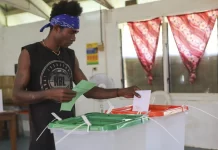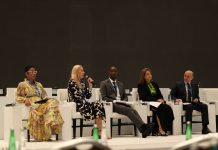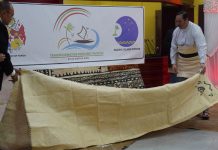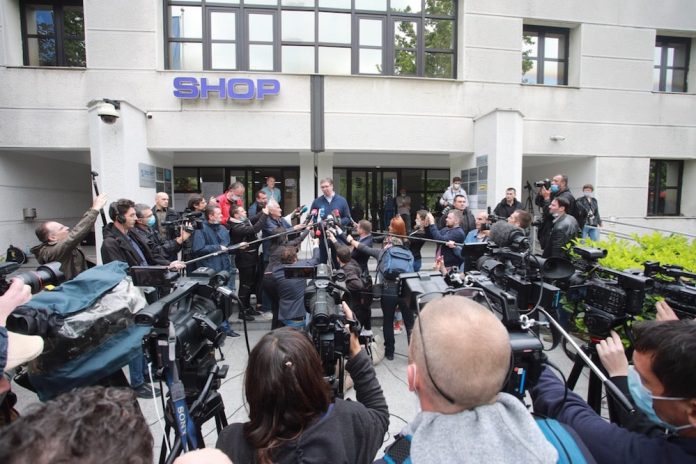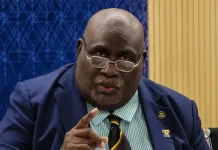This statement was originally published on cpj.org on 11 March 2021.
By Rebecca Redelmeier/CPJ Audience Engagement Associate
With multiple federal investigations underway into the January 6 Capitol riot, concerns still abound about the spread of disinformation around the U.S. election. But the U.S. is not alone in confronting the phenomenon. Disinformation is happening all over the world – especially during high stakes events like national votes.
“It’s language agnostic, it’s region agnostic, it doesn’t respect borders,” Jane Lytvynenko, a BuzzFeed News reporter on the disinformation beat, told CPJ via phone. “Not to sound too grim, but this is going to be an ongoing trend both within elections and outside of elections.”
When disinformation proliferates, journalists play a central role in trying to correct the record. “It’s kind of like [journalists are] in the outfield watching for what pop fly is going to come out, and we try to catch it,” Aimee Rinehart, the U.S. deputy director at First Draft, a research center focused on combatting disinformation, told CPJ via phone.
CPJ spoke with journalists in Serbia and Venezuela, where disinformation was part of the ruling parties’ playbooks to cement power in opposition-boycotted elections, and in Ethiopia, where disinformation could play a role in the vote planned for June. The journalists told CPJ about the importance of reporting on and correcting disinformation no matter its volume, and how they did it.
Serbia
On June 21, 2020, Serbia held a parliamentary election, after postponing it from April due to the COVID-19 pandemic. Serbian President Aleksandar Vučić’s Serbian Progressive Party won the majority of seats in the country’s parliament, amid a boycott and accusations of illegitimacy by the opposition party. The opposition said Serbia’s lack of democratic standards, its state-controlled media, and the dangers of voting during the pandemic ruled out the possibility of a fair vote.
Ahead of the election, the team at Serbian fact-checking organization Istinomer – or Truth-o-Meter, in English – worked to debunk false claims spread by Vučić and his supporters that cast the president in a positive light.
For example, the Istinomer team found that Vučić claimed that Serbia had one of the lowest COVID-19 mortality rates in Europe in a campaign letter he sent to senior citizens a few weeks before the vote, Milijana Rogač, a journalist at Istinomer, told CPJ via phone. In its fact-check, Istinomer reported that there were at least 20 European countries with lower COVID-19 mortality rates at the time.
“We could hear from the ruling party during the campaign the message that ‘We won the coronavirus – we are that good. We won.’ But then after the elections, the [COVID-19] numbers just went insane completely,” Rogač told CPJ.
In the days following the election, Istinomer also debunked Vučić’s claim in a speech that the elections had been “the calmest, cleanest, and best campaign so far.” The fact-checking team sourced research from non-partisan election observers, which found there to be irregularities, corruption, and changing of rules during the election. “You could say that was not true based on reports about the election process,” Rogač told CPJ.
Rogač and her colleagues face harassment over their fact-checking work. Ruling party politicians, tabloids, and social media users have called them “enemies” and accused them of working for the opposition party, Rogač said. Sometimes, the attacks are more severe. “A year ago, just after our [site’s] 10th birthday, we were a target of an internet [DDoS] attack,” Rogač said. “It was disturbing. Suddenly everything was crashing. It was really, really horrible.” The team filed a complaint with the Serbian Ministry of Interior following the attack, but more than a year later, Rogač said it has not heard back from the ministry.
“As journalists, all we can do is to not give up,” Rogač told CPJ. “To ask questions, to call institutions and politicians and public officials and show them that we are here. We’re not giving up on facts.”
A Serbian government spokesperson did not reply to CPJ’s email request for comment.
Venezuela
On December 6, 2020, Venezuelan President Nicolás Maduro’s allies won a majority of congressional seats in a parliamentary election that was boycotted by the country’s opposition. Opposition leaders had raised concerns that the Supreme Court tilted the electoral process in favor of Maduro when it appointed an electoral commission without consulting the previous opposition-held congress, among other moves.
Amid the boycott, political leaders in Maduro’s coalition government, pro-government media outlets, and journalists at government-owned outlets, flooded the internet with messages to boost faith in the legislative election’s integrity, Marianela Balbi, director of the Venezuelan press freedom organization IPYS Venezuela, told CPJ via phone.
“The government’s aim was to impose its discourse of victory, of legitimacy, of popular participation,” Balbi said. “They used the entirety of the communications structure to obtain their objectives.”
On Twitter, for example, the National Election Council (CNE) asserted that the elections were overseen by international observers, including ones from the United States, a claim countered by the U.S. Mission to the Organization of American States.
Balbi told CPJ that her eight-person team tracked the disinformation leading up to and on the day of the vote but that it opted not to debunk it in real time over doubts that such an effort could cut through the deluge. Instead, the week after the election, the team published a massive post-mortem report – a six-part series investigating how the disinformation was spread and by whom.
In its series, IPYS identified four sources of disinformation – pro-government media outlets, pro-government journalists, political institutions such as parties and the electoral commission, and political leaders and government spokespeople. It found that the disinformation started with Maduro, pro-government journalists, and other politicians, and it was then spread by political institutions and other media outlets.
“We have to leave a testimony – a clear testimony – of what has happened,” she told CPJ, explaining the rationale for the project. “A testimony that is structured, systematic, of how this model … was built, constructed, and how it has been exported [to the eyes and ears of Venezuelans], and how it completely changed the media ecosystem in Venezuela” by presenting a dominant narrative largely unquestioned by the mainstream press, she said.
Venezuela’s Ministry of Communications and Information and the country’s telecommunications regulatory agency did not respond to CPJ’s calls and emails.
Ethiopia
On June 5, 2021, Ethiopia is due to hold parliamentary, regional, and municipal elections, after they were postponed from August 2020 due to the COVID-19 pandemic. At the polls, Prime Minister Abiy Ahmed’s Prosperity Party will seek to cement its position, facing opposition parties looking to gain more power at the federal and regional levels, according to media reports. Ethiopian journalists told CPJ that they are expecting a deluge of disinformation about the vote, pointing to a recent spike in disinformation surrounding the ongoing conflict for control of the Tigray region between the Ethiopian federal government and forces loyal to Tigray’s former regional government.
As the conflict has escalated – leading the United Nations to warn of possible war crimes – parties on both sides have spread false information. For instance, early on Abiy told parliament that no civilians were killed in a November army operation in Tigray, a claim countered by local doctors, according to The New York Times. On the other side, social media accounts sympathetic with the former regional government have shared posts with an image claiming to depict killed federal soldiers; in fact it was a still from a movie, AFP found. Plenty of other examples abound, according to news reports.
Looking ahead, one Ethiopian journalist told CPJ he is worried about disinformation and the vote. “The election is going to be a trying moment for us,” said the journalist, who spoke with CPJ on the condition of anonymity due to security concerns. “I believe that we are going to see a lot of misinformation happen – we’re already seeing it start.” He said he had already seen social media users repeating election-related falsehoods, such as the claim that the head of Ethiopia’s election board had left her job and moved to the U.S. and that opposition leaders were planning to join Abiy’s Prosperity Party. He is concerned that these rumors will create a sense of uncertainty and confusion when it comes time to vote.
Ahead of the vote, one Ethiopian group, the non-profit Center for Advancement of Rights and Democracy, has been teaching journalists the ins and outs of reporting on disinformation.
“We give them [training] on how to spot false information, how to do fact-checking, how to use technology and resources for investigations and fact-checking,” Befekadu Hailu, a prominent Ethiopian blogger and the organization’s co-founder and executive director told CPJ via phone. He noted the importance of empowering local journalists to fact-check in their own languages, given that many of the country’s existing fact-checking operations publish in English, which doesn’t reach a broad Ethiopian audience.
The journalist who requested anonymity told CPJ he fears for press freedom during the election as both supporters of the federal government and its detractors continue to target journalists online. “Previously, journalists used to fear the government – what they were fearing was an arrest. But, nowadays, these social media activists or mobs, they don’t have an address,” he said. “So, you know, journalists are afraid, because somebody may take action against them based on this writing on Facebook.”
The Ethiopian prime minister’s spokesperson and the Ethiopian Broadcasting Authority did not respond to CPJ’s email requests for comment.
Rebecca Redelmeier is CPJ’s audience engagement associate. Previously, she developed reports and data stories about how online audiences engage with content for NewsWhip, and worked as a reporter for Daily Maverick in South Africa.


